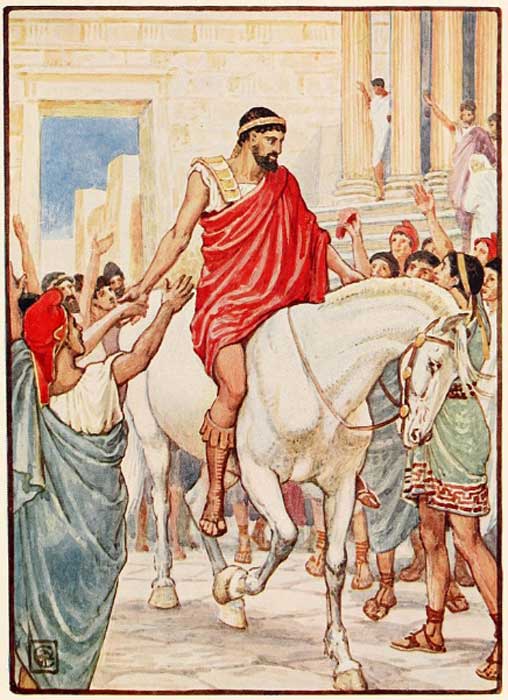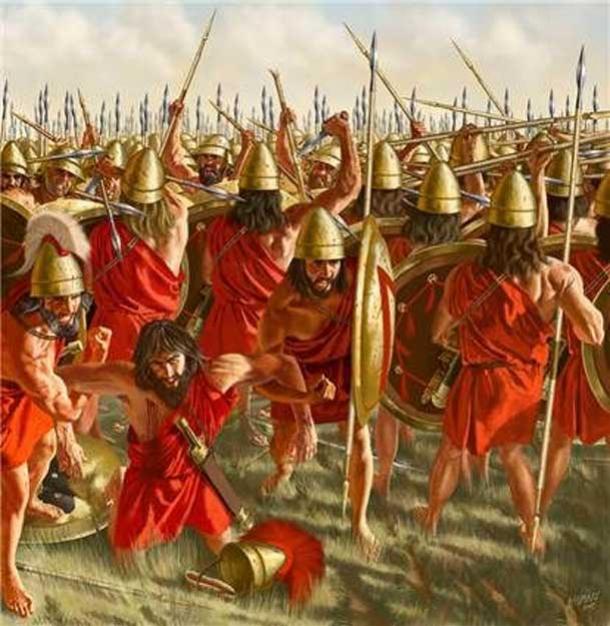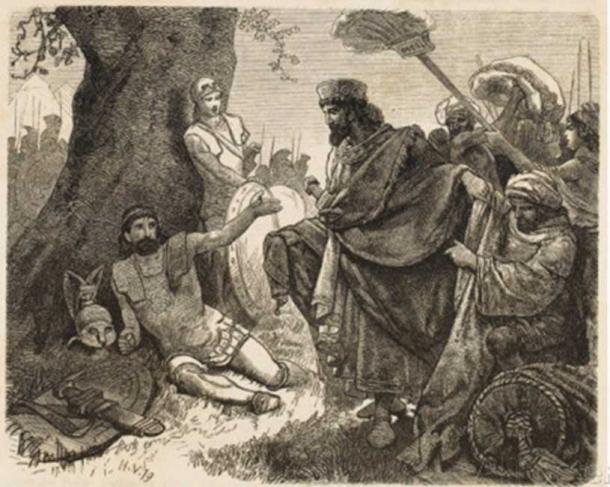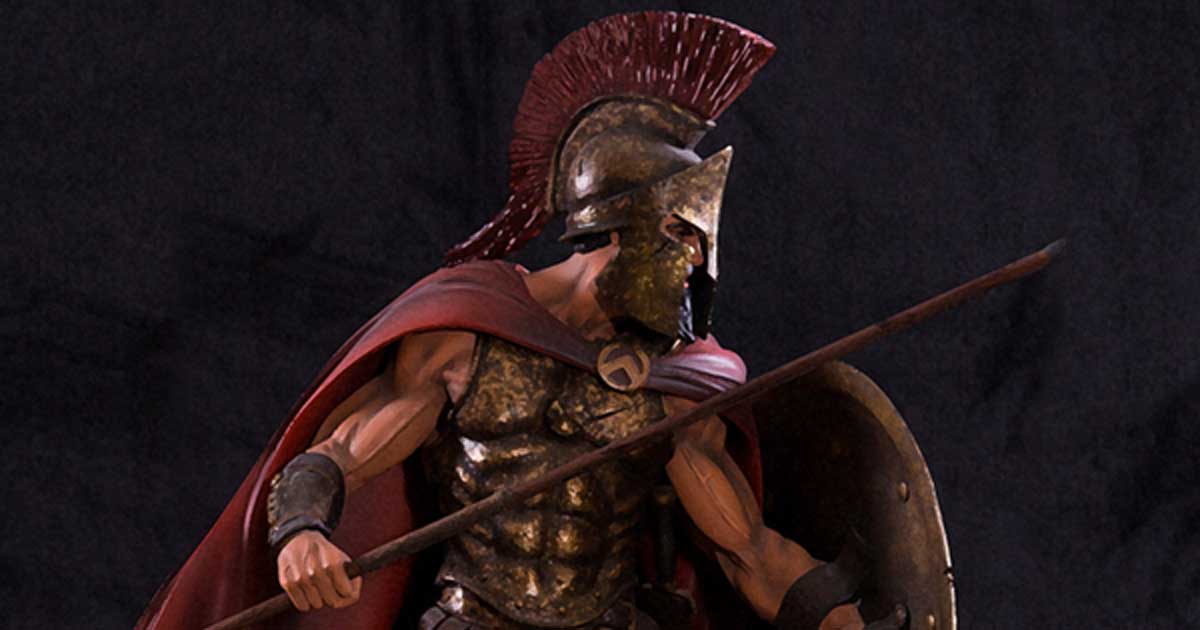Ancients - Agesilaus II, King of Sparta and Commander of Warriors
Agesilaus II was a king who ruled over the ancient Greek city state of Sparta during the 4th century BC. Agesilaus was from the Eurypontid family, one of the two royal dynasties of Sparta (the other being the Agiad family). This Spartan king is perhaps best known for his victories against the Persians in Anatolia, as well as his successes in the Corinthian Wars. The Spartan defeat by the Thebans at the Battle of Leuctra, which took place during Agesilaus’ reign in 371 BC, however, brought an end to Spartan dominance in the Peloponnese.
Agesilaus was the second son of Archidamus II, a Spartan king reigned from around 477 BC to 426 BC. and his second wife, Eupolia, the daughter of Melesippidas. Following Archidamus’ death, the throne passed on to Agesilaus’ elder half-brother, Agis II, who ruled the city state until 400 BC. Under normal circumstances, Agis’ successor would have been his son, Leotychidas. There were rumors, however, that this boy’s real father was actually Alcibiades, an Athenian general who had lived in Sparta for some time as an exile. Backed by the powerful Spartan general, Lysander (who was also Agesilaus’ lover when he was younger), Agesilaus was crowned as the new king of Sparta from the Eurypontid family.

Spartan general Lysander, Agesilaus’ lover (public domain)
In the Greek biographer Plutarch’s The Life of Agesilaus, the king is recorded as courting the favour of the ephors and the senators, two groups of people in the Spartan political system that the Spartan kings were traditionally at odds with. For example, whenever a man was made a member of the senate, the king would send him a cloak and an ox as a mark of honour. By doing such things, Agesilaus enhanced his own prestige and influence, and added “to the power of the king a greatness which was conceded out of good-will towards him.”
Agesilaus, the Military Commander
In his capacity as a military commander, Agesilaus’ first campaign was against the Persians in Anatolia, with the task of liberating the Greek city states there. This decision to wage war against the Persians was in part due to Lysander’s intention of aiding his friend there, whom he had placed in positions of power. As Plutarch wrote, “Now, Lysander was eager to be sent again into Asia, and to aid his friends there. These he had left governors and masters of the cities, but owing to their unjust and violent conduct of affairs, they were being driven out by the citizens, and even put to death. He therefore persuaded Agesilaus to undertake the expedition and make war in behalf of Hellas.”
Trouble on the Homefront
Agesilaus was successful in his campaign, and obtained several victories against the Persian satraps Pharnabazus and Tissaphernes. He was, however, summoned back to mainland Greece in the spring of 394 BC, as several uprisings against Spartan hegemony there, especially in the region of Boeotia, had occurred during the previous summer. The Boeotians were defeated near Coronea on the 14th of August 394 BC. By this time, the Corinthian Wars had begun, and Agesilaus was to remain in mainland Greece to protect Spartan interests.

A battle between the Boeotians and the Spartans. Artwork by J. Shumate
The Corinthian Wars pitted Sparta and its allies against the Corinthians, Boeotians, Athenians, who were supported by the navy and gold of Persia. In the early years of the war, Agesilaus had won several victories for the Spartans. Nevertheless, neither the Spartans nor their enemies were able to decisively defeat the opposing side. The war dragged on until 387 BC, when a peace treaty was concluded between the Spartans and the Persians, whom the former understood as the real threat. Apart from ending the war, the treaty also resulted in the dominance of Sparta over the other Greek city states in mainland Greece, whilst Persian rule was extended other those in Asia.

Agesilaus Ii, Ruler of Sparta, Meets with the Persian Ambassador Pharnabazos (Allposters)
Spartan hegemony would not last long, as discontent was growing within the other city states. Thebes, for instance, rebelled in 379 BC, and had been successful against the Spartans. These successes in turn allowed the Athenians to reorganise their empire into the Second Athenian Confederacy. In 371 BC, the Thebans decisively defeated the Spartans at the Battle of Leuctra, thus ending Spartan supremacy in mainland Greece.
Agesilaus continued to serve as king, though he began his career as a mercenary captain in 367 BC, in the hope that he would be able to earn the money that Sparta needed to combat the rise of Thebes. In that year, he was employed by Ariobarzanes, a satrap who was revolting against the Persian king. Later on, he served the Egyptian king Teos, who was planning to attack the Persians in Syria. The pharaoh, however, was overthrown, and Agesilaus sided with the new ruler, Nectanebo II. Agesilaus and his mercenaries were sent to Mendes to get rid of a pretender to the throne, and then sent back to Sparta. When the king reached Cyrene, however, he fell ill and died.

No comments:
Post a Comment